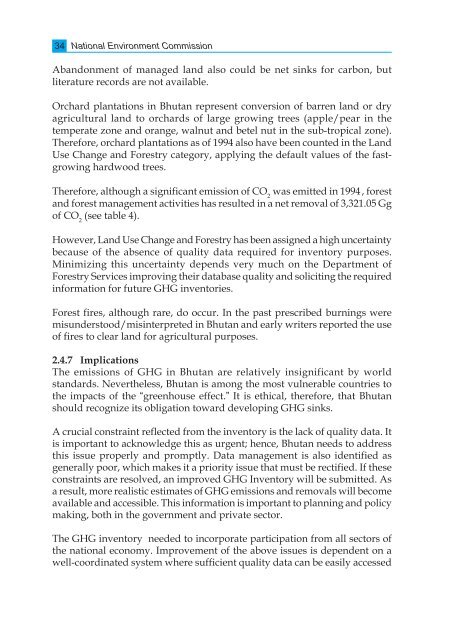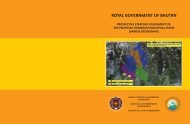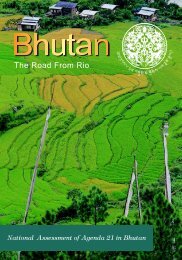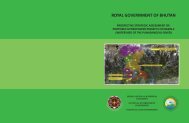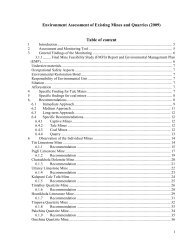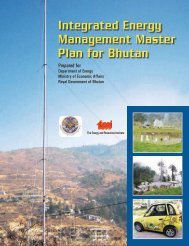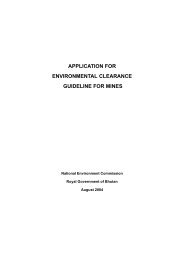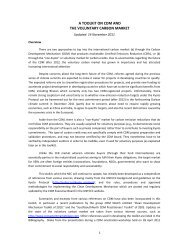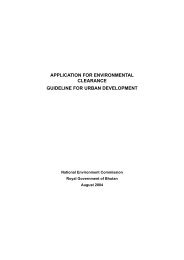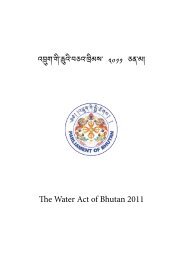Initial National Communication, under UNFCCC, September 2000
Initial National Communication, under UNFCCC, September 2000
Initial National Communication, under UNFCCC, September 2000
You also want an ePaper? Increase the reach of your titles
YUMPU automatically turns print PDFs into web optimized ePapers that Google loves.
34<br />
<strong>National</strong> Environment Commission<br />
Abandonment of managed land also could be net sinks for carbon, but<br />
literature records are not available.<br />
Orchard plantations in Bhutan represent conversion of barren land or dry<br />
agricultural land to orchards of large growing trees (apple/pear in the<br />
temperate zone and orange, walnut and betel nut in the sub-tropical zone).<br />
Therefore, orchard plantations as of 1994 also have been counted in the Land<br />
Use Change and Forestry category, applying the default values of the fastgrowing<br />
hardwood trees.<br />
Therefore, although a significant emission of CO 2<br />
was emitted in 1994 , forest<br />
and forest management activities has resulted in a net removal of 3,321.05 Gg<br />
of CO 2<br />
(see table 4).<br />
However, Land Use Change and Forestry has been assigned a high uncertainty<br />
because of the absence of quality data required for inventory purposes.<br />
Minimizing this uncertainty depends very much on the Department of<br />
Forestry Services improving their database quality and soliciting the required<br />
information for future GHG inventories.<br />
Forest fires, although rare, do occur. In the past prescribed burnings were<br />
mis<strong>under</strong>stood/misinterpreted in Bhutan and early writers reported the use<br />
of fires to clear land for agricultural purposes.<br />
2.4.7 Implications<br />
The emissions of GHG in Bhutan are relatively insignificant by world<br />
standards. Nevertheless, Bhutan is among the most vulnerable countries to<br />
the impacts of the “greenhouse effect.” It is ethical, therefore, that Bhutan<br />
should recognize its obligation toward developing GHG sinks.<br />
A crucial constraint reflected from the inventory is the lack of quality data. It<br />
is important to acknowledge this as urgent; hence, Bhutan needs to address<br />
this issue properly and promptly. Data management is also identified as<br />
generally poor, which makes it a priority issue that must be rectified. If these<br />
constraints are resolved, an improved GHG Inventory will be submitted. As<br />
a result, more realistic estimates of GHG emissions and removals will become<br />
available and accessible. This information is important to planning and policy<br />
making, both in the government and private sector.<br />
The GHG inventory needed to incorporate participation from all sectors of<br />
the national economy. Improvement of the above issues is dependent on a<br />
well-coordinated system where sufficient quality data can be easily accessed


